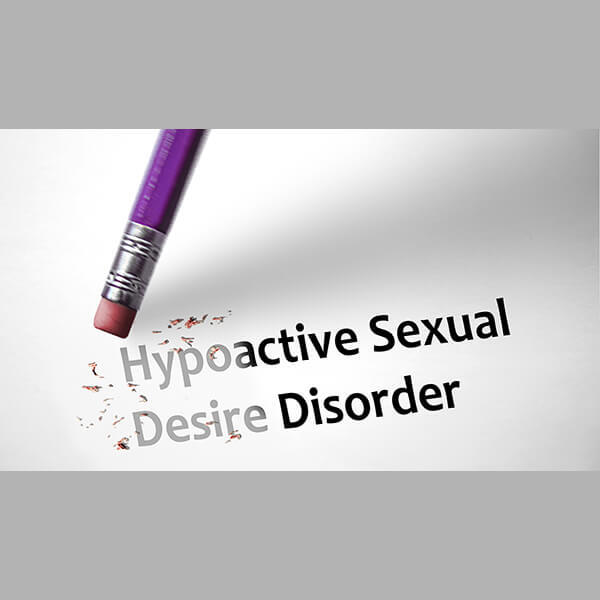
Hypoactive Sexual Desire Disorder (HSDD) is a condition where a person has little to no interest in sexual activity, often leading to emotional stress or relationship strain. It can affect self-esteem and closeness with a partner.
Visit our DOXXES store on North Freeway / FM 1960 for supportive products that promote comfort and connection.
What Is Hypoactive Sexual Desire Disorder (HSDD)?
HSDD is a long-term lack of sexual interest that causes distress or problems in relationships. It’s more than just a low sex drive—it continues over time and affects quality of life.
There are different types:
- Superficial: No interest in light touch or flirtation
- Deep: No emotional or physical desire
- Conditional: Desire only appears under specific circumstances
To confirm HSDD, a medical evaluation is necessary.
What Causes HSDD?
Mental and Emotional Causes
- Stress from work, finances, or parenting
- Anxiety about sex or body image
- Past trauma or abuse
- Relationship problems like low trust or communication issues
Physical Causes
- Hormonal changes during menopause or after childbirth
- Thyroid disorders
- Pain from endometriosis or pelvic issues
- Effects of surgery or chronic illness
These mental and physical factors often interact and worsen the symptoms.
Common Examples and Identifying Triggers
Examples of How HSDD May Show Up
- A new parent feels disconnected and uninterested in sex
- Someone with a history of trauma avoids physical closeness
- Work stress leads to a drop in desire
- Pain during sex causes fear or avoidance
Ways to Track and Identify Triggers
- Keep a simple journal of stress, mood, and energy levels
- Look for patterns when desire increases or decreases
- Try small changes like lighting, timing, or different forms of touch
Who Does It Affect?
HSDD can affect anyone—regardless of gender or sexual orientation.
- Women: Often experience shifts during hormonal changes like puberty, pregnancy, or menopause
- Men: May struggle due to low testosterone, illness, or pressure to perform
- Non-binary individuals: May face added challenges such as gender dysphoria or social stress
How Sex Therapy Can Help
- Explore your sexual history and emotional well-being
- Identify specific issues like anxiety, low self-esteem, or trauma
- Support open communication between partners
- Suggest strategies to rebuild desire in a safe way
How to Treat and Manage HSDD
- Talk therapy or couples counseling
- Mindfulness and stress management exercises
- Pelvic floor training to reduce pain and improve muscle control
- Hormone therapy or FDA-approved medications when needed
- Sensate focus exercises, which encourage closeness without pressure
Many people feel better with a mix of emotional support, medical care, and self-care tools.

How DOXXES.LOVE Can Support You
DOXXES offers:
- Water-based lubricants to reduce discomfort
- Pelvic exercisers to improve muscle tone and control
- Gentle vibrators to help stimulate interest
- Prostate massagers for safe and focused pleasure
All products come with clear, simple instructions. Using these tools along with therapy often speeds up results and boosts confidence.
How to Talk About HSDD
Being open can ease tension and bring couples closer. Try these tips:
- Speak in a calm, private space
- Use "I feel" statements instead of blame
- Share useful information together
- Be honest but kind
- Seek help early if you feel overwhelmed
Visit Our DOXXES Store – North Freeway / FM 1960
Come by our store to explore options, ask questions, or get private suggestions. Our team is supportive and respectful, making it easier to find what works for you.
Conclusion
HSDD is common and treatable. By understanding the causes, using the right tools, and seeking support, you can rebuild intimacy and feel more connected. Visit DOXXES on North Freeway / FM 1960 to get started.
FAQs
- What is HSDD?
It's a condition where someone has a lasting lack of sexual desire that causes emotional or relationship stress. - How is HSDD different from low libido?
Low libido may come and go. HSDD is more serious, lasting longer and often leading to personal distress. - What causes HSDD?
Causes include stress, hormone changes, medical conditions, certain medications, or emotional trauma. - How is HSDD diagnosed?
Doctors ask about your symptoms, health history, and may run tests to rule out other causes. - What are the treatment options for HSDD?
Therapy, medications, hormone support, and stress reduction techniques are commonly used. - Is HSDD curable?
Many people improve with proper care. It's not about a "quick fix" but a steady path to better wellness. - Can antidepressants cause HSDD?
Yes, some antidepressants, especially SSRIs, may lower sexual desire as a side effect. - Is it normal to lose desire after childbirth or menopause?
Yes, but if it lasts and causes distress, it could be HSDD and may need treatment. - Can couples therapy help?
Yes. Therapy can improve communication and rebuild emotional and sexual closeness. - Is HSDD a mental health problem?
It's a mix of physical and emotional factors and is considered a sexual health condition.
